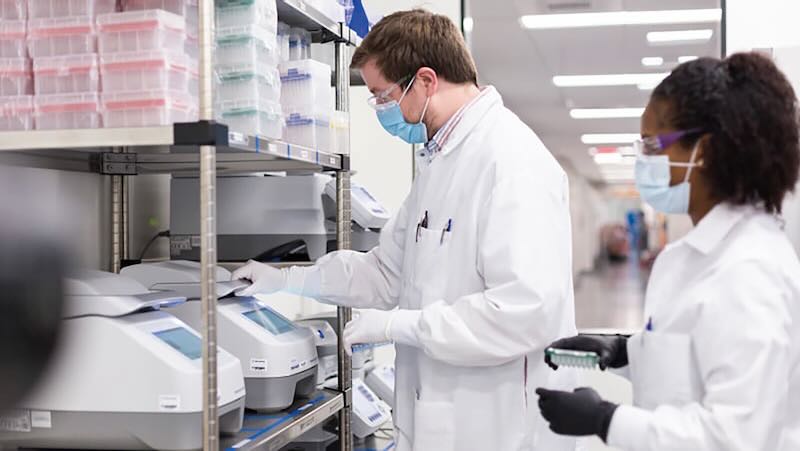
In the face of evolving infectious disease threats, Moderna is at the forefront of revolutionizing vaccine technology with its pioneering mRNA platform.
The company’s rapid response during the Covid-19 pandemic reshaped the vaccine development landscape and set a new benchmark for tackling future health crises. Through continuous innovation, Moderna is demonstrating how mRNA vaccines offer unprecedented speed, adaptability, and effectiveness in combating emerging infectious diseases.
“The pandemic taught us invaluable lessons about streamlining vaccine development while maintaining rigorous safety and efficacy standards,” says Dr. Piyali Mukherjee, vice president of Asia Pacific Medical Affairs at Moderna. “By leveraging our existing mRNA technology, we are significantly reducing the time required to design, test, and distribute vaccines for emerging threats.”

Since its founding in 2010, Moderna has remained true to its vision of using mRNA technology as a platform to transform medicine. “When the pandemic hit, we had already been working for close to a decade on our pioneering mRNA-based vaccines and laying the groundwork for rapid response to infectious disease,” says Mukherjee. “The work that we had done included some advanced work on mRNA-based influenza and Zika virus vaccines. These experiences positioned us to respond incredibly rapidly when Covid-19 came.”
Moderna’s mRNA approach enables scientists to quickly generate vaccine candidates based on genetic sequences of emerging influenza strains. This advantage is particularly crucial in addressing two distinct but critical challenges: seasonal influenza, which requires annual vaccine updates to match circulating strains, and avian influenza, which poses a potential pandemic threat due to its ability to jump species.
Moderna’s mRNA platform allows for near-instantaneous updates to vaccine formulations, ensuring higher efficacy against emerging variants of both seasonal and avian influenza.
“With mRNA, we don’t need to grow viruses in a lab – we only need the genetic sequence,” says Mukherjee. “This means that as soon as a new strain is identified, we can update our vaccine formulations in real-time.”
This flexibility is a game-changer for pandemic response. Moderna’s mRNA technology enables near-instantaneous updates, ensuring higher efficacy against emerging variants.
The benefits of mRNA vaccines extend beyond rapid development. mRNA-based vaccines can be designed and manufactured in a fraction of the time required for traditional vaccines. The same production infrastructure can be used to manufacture vaccines against different pathogens, allowing for rapid scale-up during outbreaks.
Moderna’s mRNA vaccines are designed to elicit strong and precise immune responses, improving protection against infection. Unlike traditional vaccine production, which involves live viruses or eggs, mRNA vaccines eliminate risks associated with biological contamination. Moderna is already leveraging this technology to develop a next-generation flu vaccine that offers broad protection against multiple strains of influenza.
One of the key challenges in pandemic response is ensuring a reliable vaccine supply chain. The pandemic exposed vulnerabilities in global supply chains, highlighting the need for localized production capabilities. Moderna has taken proactive steps to address this issue.
“We are expanding our global manufacturing network to ensure rapid production and distribution of vaccines during a health crisis, with facilities in all corners of the world,” says Mukherjee. “Our Moderna Innovation and Technology Centers in Oxfordshire, Canada, and Australia will play a critical role in ensuring vaccine availability in these regions and beyond.
By investing in decentralized production hubs, Moderna is enhancing supply chain resilience and ensuring that vaccines reach populations in need without unnecessary delays.

Despite the advancements in vaccine technology, ensuring equitable access remains a significant challenge. Disparities in vaccine availability between high-income and low-income countries have been a persistent issue, exacerbated by logistical and economic barriers. Moderna is actively working to bridge this gap by partnering with governments, global health organizations, and regional manufacturers to expand vaccine access.
“We recognize that innovation alone is not enough – we must also ensure that our vaccines are accessible to everyone, regardless of geography or economic status,” says Mukherjee. “That’s why we are committed to scaling up production and working with global partners to facilitate distribution in underserved regions.”
As the threat of emerging infectious diseases continues to grow, Moderna is leading the charge in developing next-generation vaccines that offer faster, more effective protection against pandemics. By harnessing the power of mRNA technology, the company is not only transforming how vaccines are developed but also redefining global health security.
“Every breakthrough we achieve brings us closer to a world where pandemics no longer catch us off guard,” says Mukherjee. “Our mission is to stay ahead of infectious diseases and deliver life-saving innovations that protect global populations.”
TW-MRNA-2500014, Mar2025





